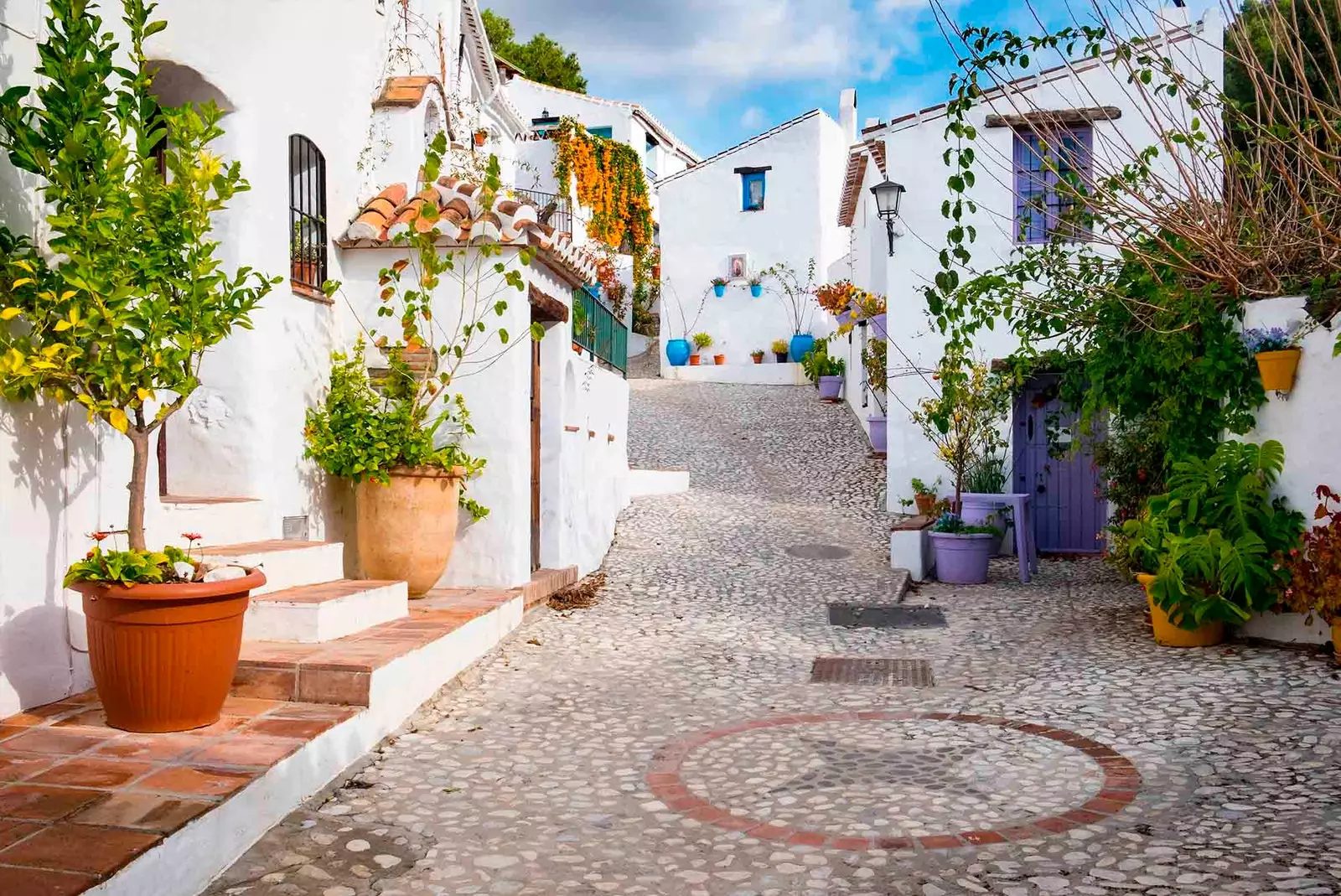
An ideal white town
The Acebuchal appears in a limpid white behind the curve, outlined in the middle of the motley pine forest that makes up the Sierras de Tejeda, Almijara and Alhama Natural Park .
We are about eight kilometers from the always beautiful frigiliana , from where you go up to this lost village through a one-way dirt road. During the journey, which offers spectacular views over the town, the mountains and even the sea, it is easy to come across cyclists and happy aliens to feel the tingling of the sun on your skin, oblivious to the effort of the walk.
El Acebuchal, however, is not even intuited during the ascent. What's more: it's simple pass by of the lane announcing its presence, its hiding place . Maybe that's why he stayed more than 50 years abandoned , visited only by the old neighbors, who looted their own homes to build others in the vicinity.
You couldn't live there: it was forbidden since the Civil Guard, during the war, learned that the 200 inhabitants of that humble village were helping the maquis rebels. In 1949, the last neighbor left the place forever.
Half a century later, a couple once again laid the first stone in El Acebuchal, as a way of reopening the tiny town. Were Virtues Sánchez and Antonio García 'The Zumbo'; She, descendants of those first settlers, always wanted to see her streets again as they were then. He was also excited about the project, which led them to buy ** 14 plots **, then in ruins, and raised hand in hand together with other former inhabitants who joined this company that seemed crazy to many. They did it without electricity or running water.
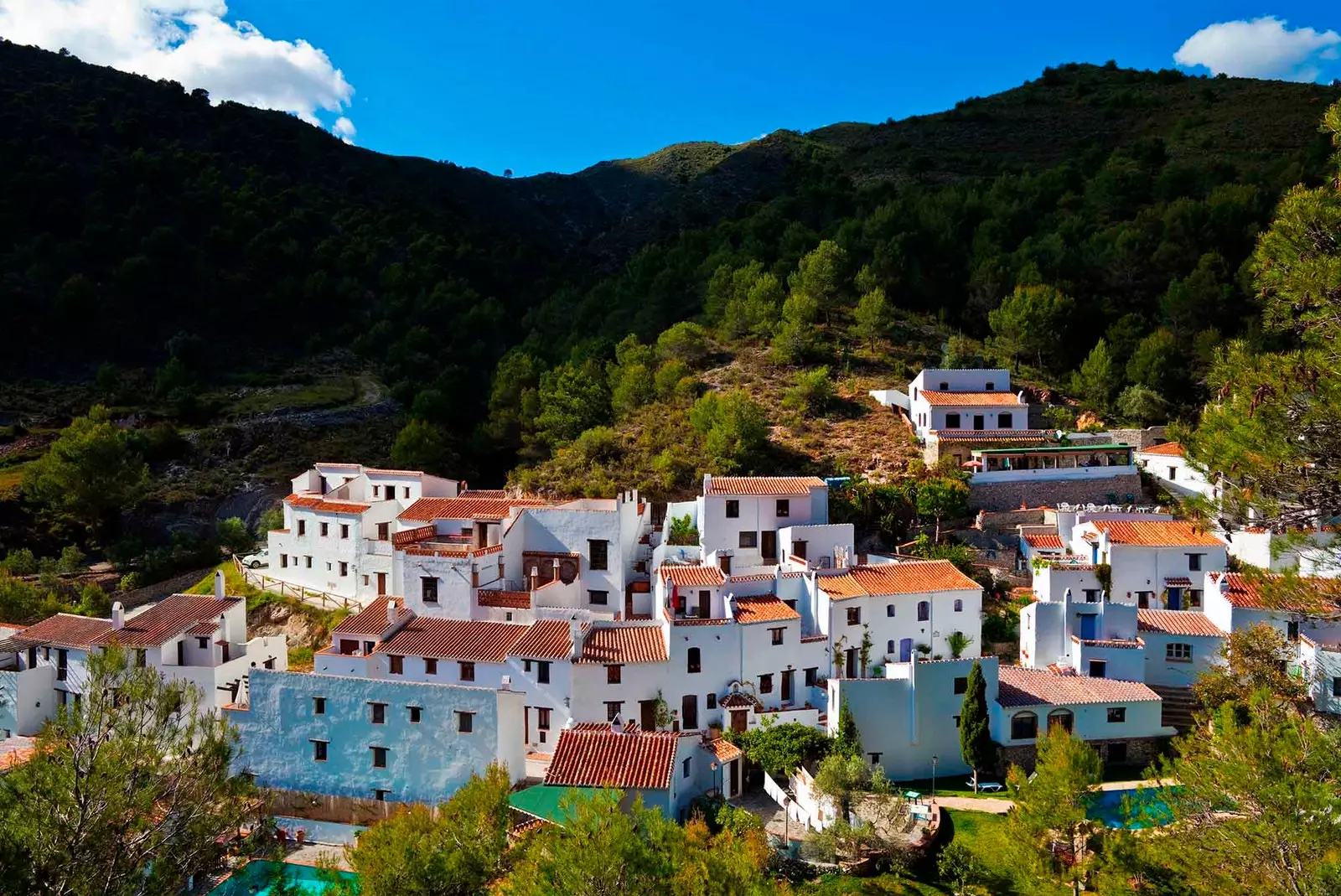
little village of memory
history tells us Virginia , one of the only two neighbors of this lost paradise. She is Argentine and, along with Luc , her Belgian husband, has been running the ** bed & breakfast The Lost Village ** for just a few months.
Her arrival was a leap of faith: they were both looking for a new place to continue their hosting work, which they had started ten years earlier in Mendoza. They wanted something for Malaga, and seeing online the photos of the house they run today, an old inn, they fell in love with the place. Without going to visit him personally They bought the house and moved to the old school , which is opposite, with her two daughters. Today it is the only accommodation that offers rooms plus breakfast and dinner; the rest are homes that are fully rented.
Who today owns the school is Aurelius Torres , 92 years old, one of the few residents left alive from the times before the maquis and the last to be born in the village. The desire to preserve it reaches the extreme of not building windows where there were none in the past so that everything remain as in your memory . Middle Virginia complains tenderly about this vehemence, which makes her house much darker than it should be, ensconced as we are in the comforts of the 21st century.
Today, the family lives in the school and runs the bed&breakfast opposite, but when the village was different, it was just the opposite: the teachers they lived opposite the school, in what was then an inn. Her brothers and sisters also lived in it; total, Five sons, whose story is told before entering the town. There, in a long text written on tiles, it is narrated how one of her sisters was left alone in the town after losing her parents, and the sad fate that this brought her. And that, after time, thanks to the miracle of her incorrupt corpse They made her a saint.
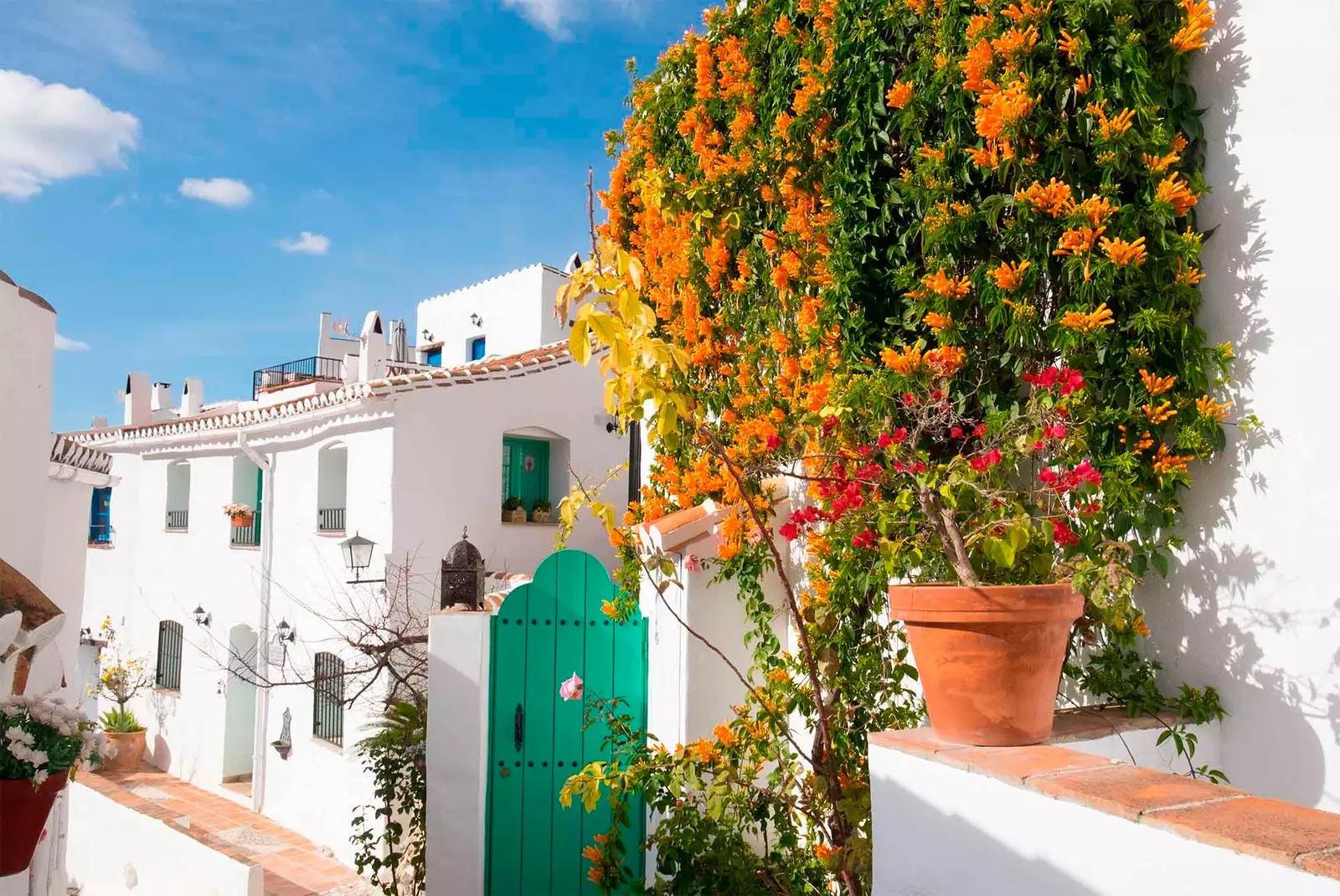
A unique recovery
While Virginia and I watch the evening fall from the terrace, the other neighbor, an English citizen with whom they share the trips to and from school, enters. She also lives by renting houses to tourists. Some stay a week, others a month, although, in the case of The Lost Village, the most common stay is that of three days . “We are surprised: 40% of our clients are Spanish people ”, points out the Argentine.
The rest come from Eastern and Northern Europe , pressured, above all, by the good temperatures. I meet them on the street: they snack on milk with fresh cookies, where before the grandmothers left with the chairs to parley. Very blond northern children run around playing with Candy, Virginia's dog, against the improbable backdrop of a centuries-old white town where no coverage.
Here it comes to that: to exist in the alleys. to bathe in the swimming pools . To walk up to El Fuerte, almost 1,000 meters high, or to explore any of the many green routes of the area. One, the GR 249 , separates El Acebuchal from Cómpeta, its capital, and there is always at least a small group of people walking through it, Virginia believes. For those facing this stretch of the Great Path of Malaga , the village is an almost necessary stop on the way up to the next town.
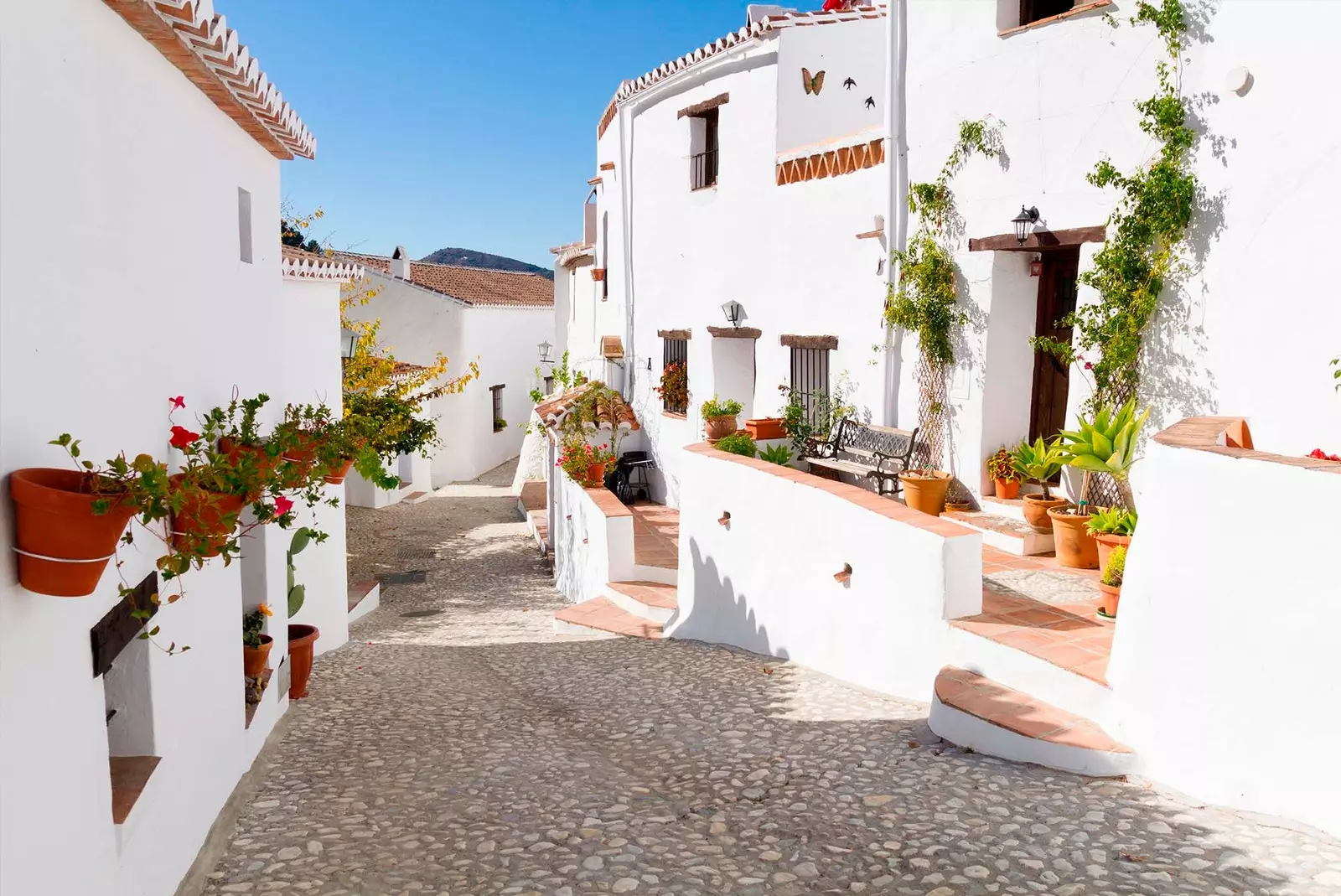
The streets have regained their usual appearance
The Argentine sometimes accompanies her guests for pleasure. He likes the mountains, and also offers guided tours with activities to get to know the area: learn how to make goat cheese, visit the avocado plantations , make a stop at the old abandoned farmhouses... He also tells the story of the place as it has reached his ears and updates us on the gossip of the village. For example, there is someone would not you agree in which the chapel -inaugurated in 2007- belongs to San Antonio, because the patron saint has always been that of San Juan and it is his festival that is celebrated every year with a procession, dance and feast.
But they are small rumors, drying in the perpetual sun of this village lost and found among the trees, where farmers, charcoal burners, road workers and muleteers and today foreigners enjoy themselves without concern. That is one difference: another, that on weekends, big days, the village can far exceed the 180 inhabitants that it had back in 1948 . The fault is, above all, the El Acebuchal Bar Restaurant : Managed by the sons of Antonio and Virtudes, this dining room baked loaf every morning, specializing in traditional recipes from the village and meat from hunt -but also with vegetarian options available-, brings together tourists and residents of the area. Knowing it or not, they come to celebrate their particular Eucharist of bread and wine in honor of those who, not so long ago, had to abandon their plate, their glass and their land.
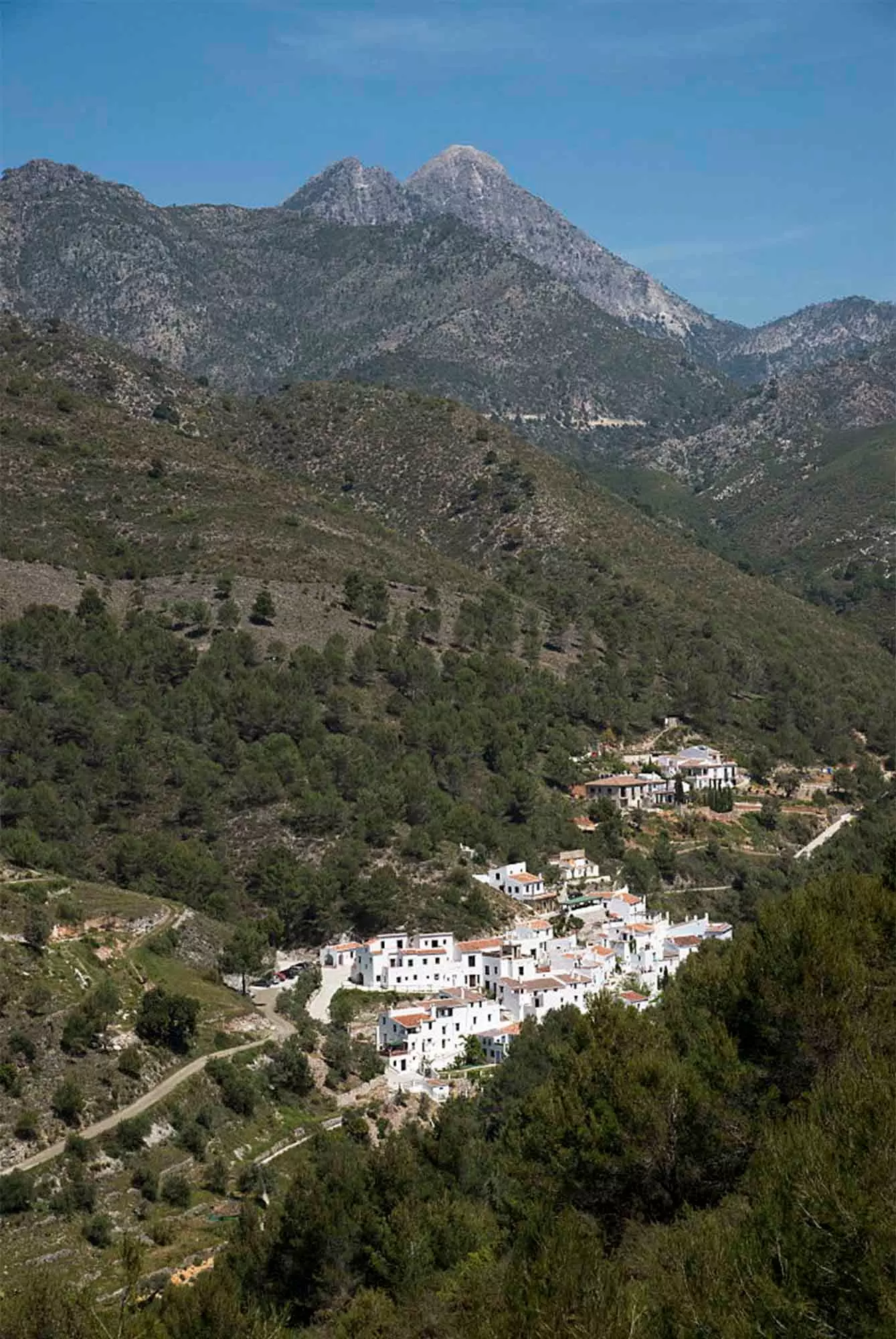
Between pines, after the curve, appears El Acebuchal
